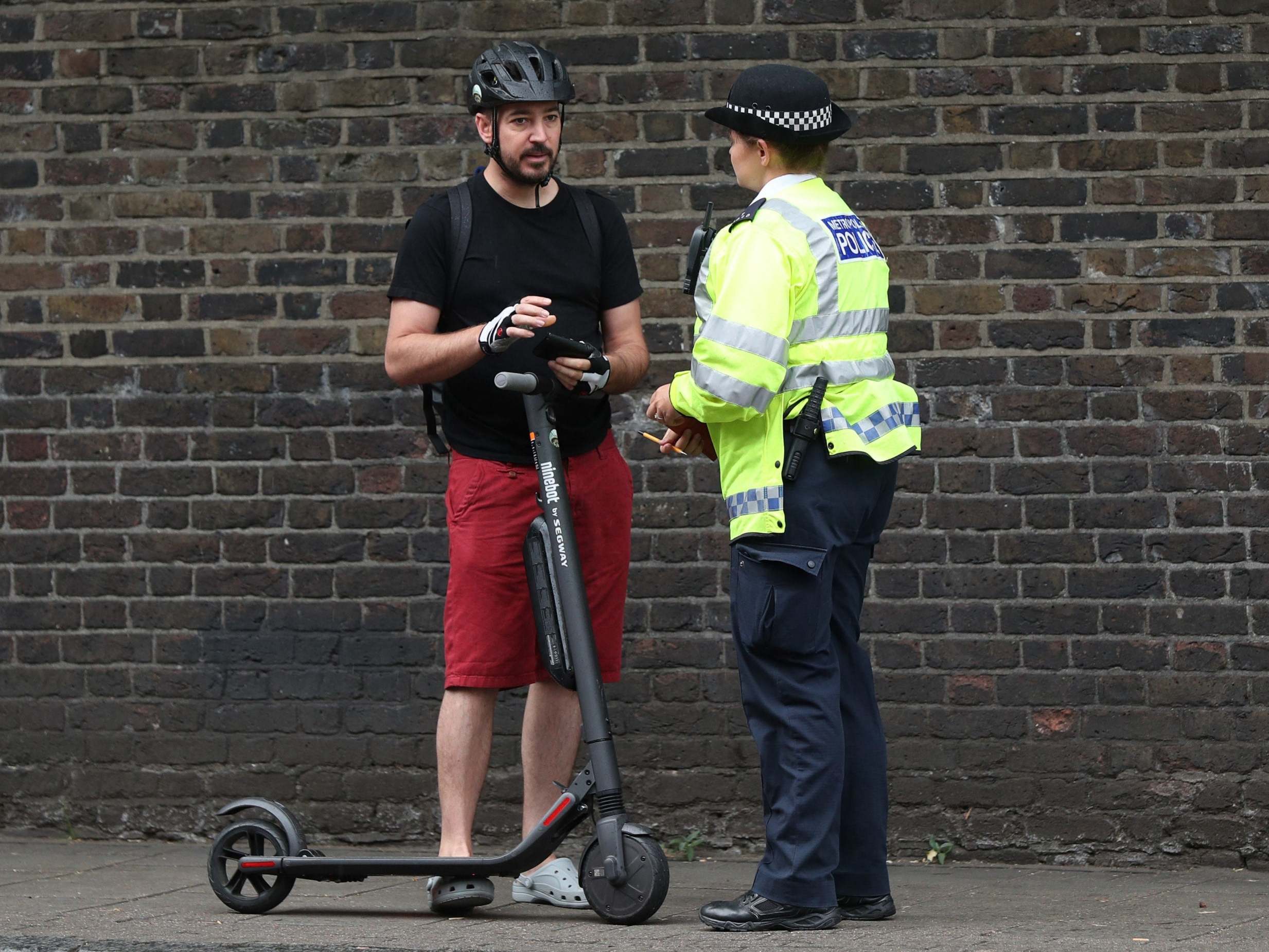Legalise electric scooters on UK roads, protesters demand
‘We want people to have the option of a green mode of transport rather than diesel buses or cars’

Your support helps us to tell the story
From reproductive rights to climate change to Big Tech, The Independent is on the ground when the story is developing. Whether it's investigating the financials of Elon Musk's pro-Trump PAC or producing our latest documentary, 'The A Word', which shines a light on the American women fighting for reproductive rights, we know how important it is to parse out the facts from the messaging.
At such a critical moment in US history, we need reporters on the ground. Your donation allows us to keep sending journalists to speak to both sides of the story.
The Independent is trusted by Americans across the entire political spectrum. And unlike many other quality news outlets, we choose not to lock Americans out of our reporting and analysis with paywalls. We believe quality journalism should be available to everyone, paid for by those who can afford it.
Your support makes all the difference.Campaigners who want electric scooters to be made legal on roads staged a protest in Downing Street, claiming there had been a “clampdown” on the use of the vehicles.
Protesters took their e-scooters to the prime minister’s home to call for a change to what they called an “outdated” law.
Electric scooters, which usually cost hundreds or even thousands of pounds, are similar to a traditional child’s scooter but are powered by a motor so can reach speeds of 30mph or more.
They have surged in popularity but many people fail to realise they are breaking the law by riding them on roads and pavements. They can legally be used only on private land in the UK.
Riders may face a £300 fixed-penalty notice and six points on their driving licence if caught.
Campaigners said the Road Traffic Act needed updating, and that e-scooters were an environmentally friendly alternative to cars.
But they have prompted safety concerns, which were heightened last month when Emily Hartridge, a television presenter and YouTuber, became the first person in the UK to be killed while riding an e-scooter.
Some UK commenters say e-scooters should have number plates, and that riders should be required to wear helmets, follow all traffic laws and be forced to pay insurance and road tax.
Peter Williams, 22, who organised the protest, said authorities had clamped down on the use of e-scooters.
“We want there to be legislation around this that will make it safer for people and we basically want people to have the option of choosing a green mode of transport rather than using, for example, diesel buses or cars,” he added.
“How is it right to prosecute those who are making a change in our city to reduce congestion, pollution and the risk of death in automotive collisions?”
However, a new American study found e-scooter sharing schemes were not as eco-friendly as they seem.
Researchers at North Carolina State University found that the materials it took to manufacture the frame, wheels and battery, as well as rounding up the scooters, charging them and returning them to the streets at the end of each day created more greenhouse gas emissions than other forms of transport.
At the same time as the Downing Street protest, Oxfordshire police issued the identity of an electric skateboard rider who died after an accident. Bradley Visser, 38, died 10 days later.
A trial of e-scooters in Queen Elizabeth Olympic Park in London has been extended, despite their wider roll-out being illegal.
The Department for Transport said the government was examining how e-scooters could be regulated for safe use on the road, while still encouraging innovative new forms of transport.
Transport for London said that if the ban on the vehicles ends, maximum speeds and restrictions on where they can be ridden must be among new safeguards.
Join our commenting forum
Join thought-provoking conversations, follow other Independent readers and see their replies
Comments